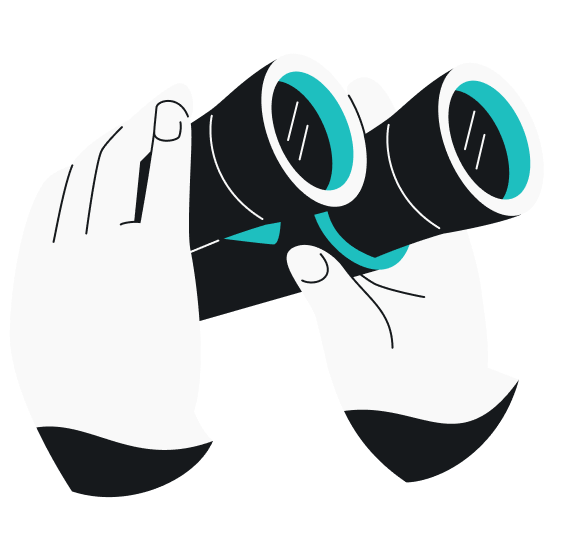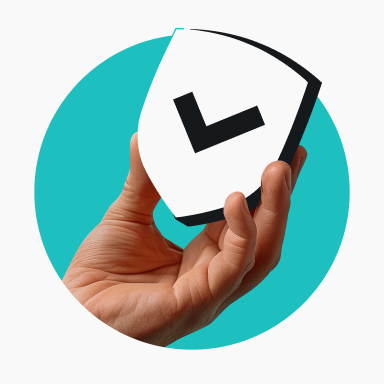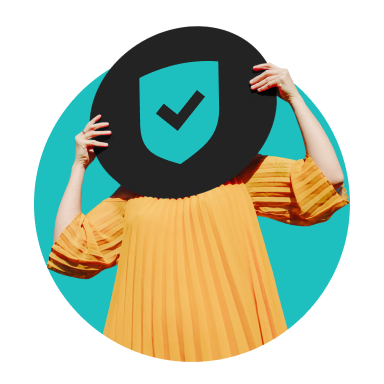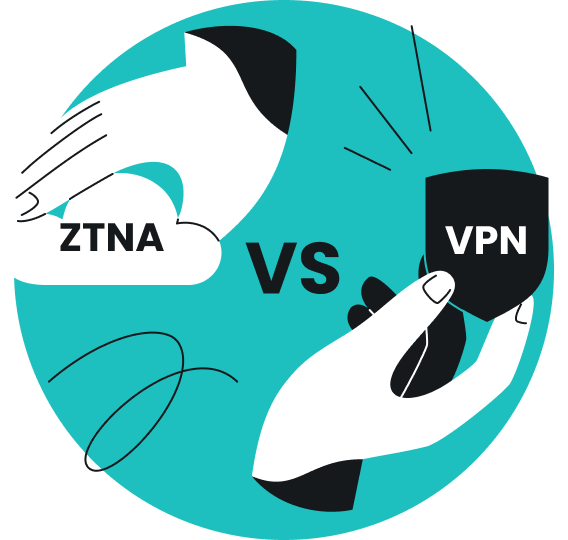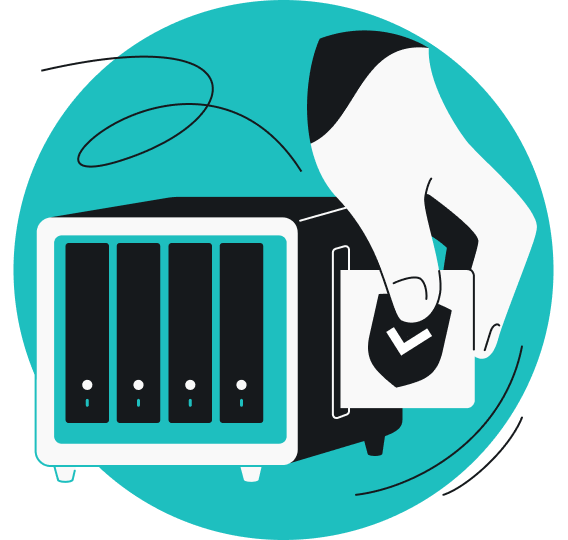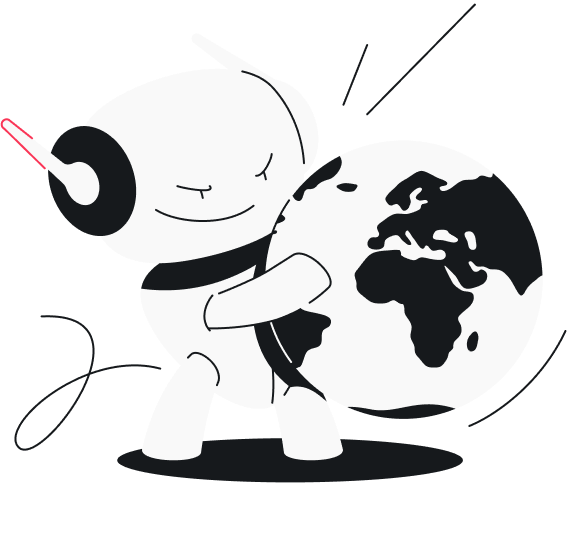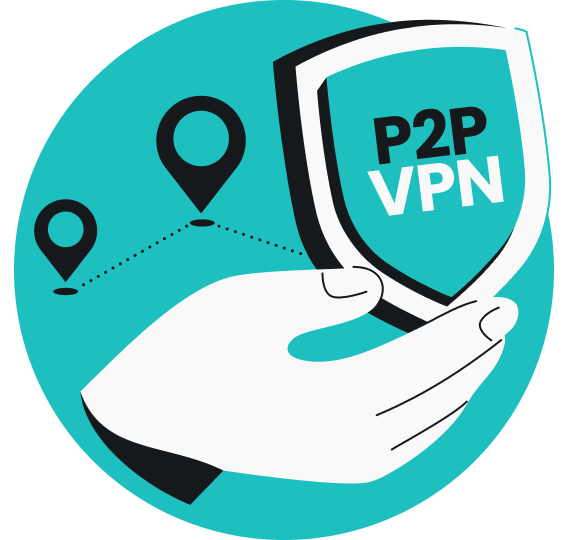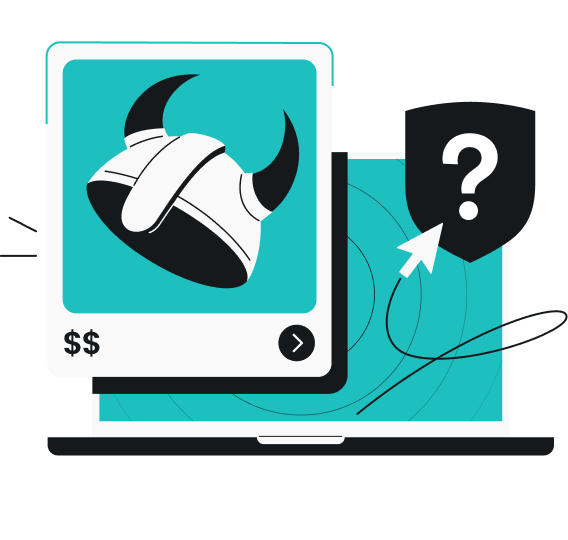Staying private online these days can feel harder than folding a fitted sheet. That’s why more people are turning to VPNs (Virtual Private Networks) to dodge digital trackers and cyber baddies while browsing the web.
But here’s the big question: can you be tracked with a VPN turned on?
Let’s break down the answer step by step.
What is VPN tracking?
Before digging deeper, it’s important to understand what VPN tracking means. When determining if someone is tracking you on the internet, take these questions into consideration:
- Can they see what you’re doing online? This involves monitoring your online behavior, including the sites you visit and the content you access.
- Can they see your personal information? Snoops often try to obtain data like your IP (Internet Protocol) address or login credentials, putting your online privacy at risk.
- Can they see that you’re using a VPN? ISPs (Internet Service Providers) or online services may aim to block encrypted internet traffic, so they try to detect — and even block — your VPN connection.
Answering yes to one or more of these counts as being tracked online when connected to a virtual private network.
Can you be tracked with a VPN?
You can’t be tracked using a reliable VPN because it encrypts your data and routes your activity through a VPN server. As a result, your ISP or bad actors can’t get any personal information out of your traffic. They’ll only see the VPN server’s IP address, so if you’re connected to a US server, the US IP address is the only thing that’s visible.
That said, things as simple as accepting cookies or logging into your social media accounts make it easier for some of your online behavior to be tracked, even with VPN software. A poor-quality VPN — or one that stores connection logs — can also compromise your privacy, so it’s vital to choose a VPN provider that offers robust encryption and a verified no-logs policy — like Surfshark.
How can you be tracked with a VPN?
While a good VPN service will foil most tracking, other factors can jeopardize your security online — with or without a VPN. Here are the most common ways used to track VPN users over the internet:
Malware
Accidentally installing malware on your device can result in severe issues like stolen personal information or even fraud.
And using a VPN doesn’t offer much anti-malware protection. For that, you’d need antivirus software that gives comprehensive defense on your devices online and offline, like Surfshark Antivirus.
IP leaks
When you use a VPN, pages should see your VPN server’s IP address, not your own. But subpar options, like a free VPN, may make your real IP address visible to websites you visit.
If in doubt, you can check your IP address here.
Cookies
Advertisers can track you across the internet by relying on cookies, small files stored on your device by websites to remember your details and preferences. To keep your internet habits private, you can install a VPN browser extension — like the Surfshark VPN Chrome extension — and ensure no cookies are saved to your device.
Logging into your accounts
Whenever you log into your personal Google account, Google still knows it’s you and follows any steps you take in the Google ecosystem, even when a VPN is in use.
The same applies to most social media networks, shopping sites, and streaming platforms.
Browser fingerprinting
More intrusive than cookie-based tracking, browser fingerprinting uses your computer settings, software, and web browser preferences to create a digital portrait of you.
Fingerprinting can track you online by identifying unique device characteristics — like screen resolution, browser version, and operating system — that remain consistent regardless of your IP address.
DNS leaks
DNS (Domain Name System) leaks happen when your device sends DNS queries outside your VPN tunnel, exposing your real IP address and unencrypted traffic to third parties, even though you’re using a VPN. They’re often the result of improper VPN setup.
You can conduct a DNS leak test to see if your VPN connection is secure. Even better, erase any doubt and go with a VPN provider with built-in DNS leak protection like Surfshark.
Doxxing
Doxxing is the malicious act of exposing someone’s private information, like their home address or workplace, often to harass or intimidate. Even with a VPN, doxxing can happen if you leave traces online, like sharing personal details on social media.
A VPN protects your IP address, but good online habits are key to elevating your internet privacy.
Entering information online
This goes without saying, but waltzing around the web saying I’m John Q. Public, here’s my actual home address won’t help you keep much of your information private, even if you’re a VPN user.
Whenever using the internet, it’s a good practice to stay cautious and avoid sharing sensitive info whenever possible to defend yourself from data leaks and bad actors.
Who can track you online?
Here are the usual suspects who may want to see what you’re up to online:
- Internet service providers: your ISP gives you internet access, so they usually monitor your online activities and might even slow your traffic. By masking your IP address and encrypting internet traffic, a VPN can boost your online privacy and — in some cases — protect your internet speeds from ISP throttling;
- Government agencies: whether collecting data or checking browsing habits, official entities routinely track what their citizens do online. Many government agencies cooperate with ISPs, but they can also use monitoring software;
- Hackers: cybercriminals and other bad actors often try to steal user data over public Wi-Fi networks that have limited security. A VPN service offers encrypted VPN traffic that hackers can’t intercept, keeping your data protected.
Can you mask your VPN traffic?
Yes, you can still hide the fact that you’re using a VPN with something called an obfuscated server. Sometimes called a stealth VPN, obfuscation makes your internet traffic look like noise that resembles neither unencrypted nor encrypted data. As a result, ISPs, firewalls, or oppressive governments are much less likely to detect and block VPN usage.
But user beware — not every VPN provider has obfuscated servers. You’re better off going with a reputable VPN like Surfshark to enjoy this feature. With Surfshark, this functionality is called Camouflage Mode.
Can you be tracked if your VPN connection drops?
Yes, if your VPN disconnects unexpectedly, your data is no longer encrypted, and your actual IP address is exposed. Third parties like your ISP can track your online activity as well.
Since you’re a much easier target for tracking when not connected to a private network, leading VPN providers like Surfshark offer a kill switch feature that cuts your internet connection whenever your VPN drops. Instead of risking having your regular internet traffic leaked, the kill switch cuts off all internet access in the event of sudden VPN interruptions, keeping your data safe from tracking.
Can you stop online tracking with a free VPN?
No, free VPNs won’t effectively protect you from tracking compared to paid options.
Looking at free VPNs vs. paid VPNs side by side, you’ll find free tools usually can’t reliably provide a secure VPN tunnel. They also limit VPN connections to a few congested servers with low speeds.
Instead of protecting your data, free VPNs frequently do the opposite. They often lack a no-logs policy and sell user data to advertisers or marketing companies. In extreme cases, these free apps are so invasive that they get more out of you than just your online habits, purchases, and browsing history. Some can access your full name, phone number, or home address.
If you’re concerned about internet tracking, a paid VPN with robust encryption and a strict no-logs policy is the safer choice.
Can you be tracked with a VPN by the government?
Generally speaking, no, the government can’t track you through a VPN. Authorities likely won’t waste their time monitoring casual VPN users — they’ll need some legal basis to actually take an interest in your VPN activity.
When the government suspects someone of a crime, they’ll likely go to an ISP to ask for connection logs. If they detect VPN connections, they might approach the VPN provider in question. But here’s the thing — if the service keeps no VPN logs of users’ data to begin with, they have nothing to give away.
All that said, governments rarely approach VPN providers anyway, as they have many other methods of tracking potentially criminal activity. For instance, reverse searches let law enforcement agencies force tech companies like Google to turn over user information.
With more oppressive governments, though, VPNs providing obfuscated servers help users get around VPN detection and connect to the internet from areas with strict censorship.
Can Google track you through a VPN?
Yes, Google can track you if you use your own Google account while surfing with a VPN. If your account is JohnQPublic@gmail.com and you’re logged in, the web giant knows your IP and can track all the activity tied to your account whether or not you’re using a VPN.
This applies to any web service that requires you to log in. Amazon might not care much about tracking your IP address, but it still wants to see what pages you’re visiting to recommend relevant products.
How can your VPN be traced?
While top VPNs won’t let third parties track you online, here are the three main ways eagle-eyed internet users can use to spot VPN traffic:
- VPN IP address: yes, connecting to a VPN server masks your IP address, but VPN IP addresses aren’t exactly undercover. When you use a VPN, websites can check if your IP matches any addresses on known databases to find out that you’re using a VPN. But don’t panic — they still won’t be able to see anything about you;
- Port number: VPNs rely on protocols to determine how to encrypt your traffic. These protocols use specific port numbers to establish a connection, kind of like you do when dialing a set phone number. For instance, Surfshark uses port 51820 for WireGuard, 1194 for OpenVPN, and 500 for IKEv2. Spotting these ports can tip off others that you’re using a VPN;
- Deep packet inspection (DPI): DPI sounds fancy, but it’s just like opening an envelope. It’s the process of examining the contents of internet data packets to identify and monitor different types of data. It’s used for good things, like blocking spam, but it’s also one way oppressive governments block VPN traffic.
Can you be fully anonymous online?
You can’t be completely untraceable online, but here are some tips you can follow to maximize your internet privacy:
- Use a trustworthy VPN;
- Use a private search engine;
- Use a private, alternative email address;
- Frequently clear out your cookies;
- Routinely update your VPN service and other apps;
- Create strong passwords that you regularly change to minimize the risk of data leaks.
Final thoughts: can you be tracked if you use a VPN?
Internet tracking becomes a lot trickier with a VPN, but it’s not entirely off the table. That’s why a VPN is just one piece of the puzzle.
A VPN shields your IP address and encrypts your traffic, but you’ll still likely leave breadcrumbs across the web. To truly level up your online privacy, pair your VPN with a full cybersecurity suite like Surfshark — complete with antivirus protection, data leak alerts, a private search engine, and more.
Let Surfshark be your whole suit of armor as you protect yourself from online tracking.
FAQ
Can you be tracked if you connect to a VPN server in the same country?
No, a trustworthy VPN will limit internet tracking from ISPs and other actors, even when you’re connected to a server in the same country. Connecting to a VPN server in the same country is just as secure as connecting to a server in a foreign country.
Can a VPN be hacked?
A VPN can technically be hacked, but this is extremely rare. A reputable VPN is secure and safe from hacking due to its strong encryption and security protocols.
But the same can’t be said for all VPNs. A free VPN, for example, may actually put your data at risk or install malware on your device.
Can the police track you with a VPN?
No, the police can’t track your live, encrypted VPN data. To do any monitoring, law enforcement bodies must get court approval to ask your ISP to share any internet traffic records they may have stored, thanks to data retention laws.

